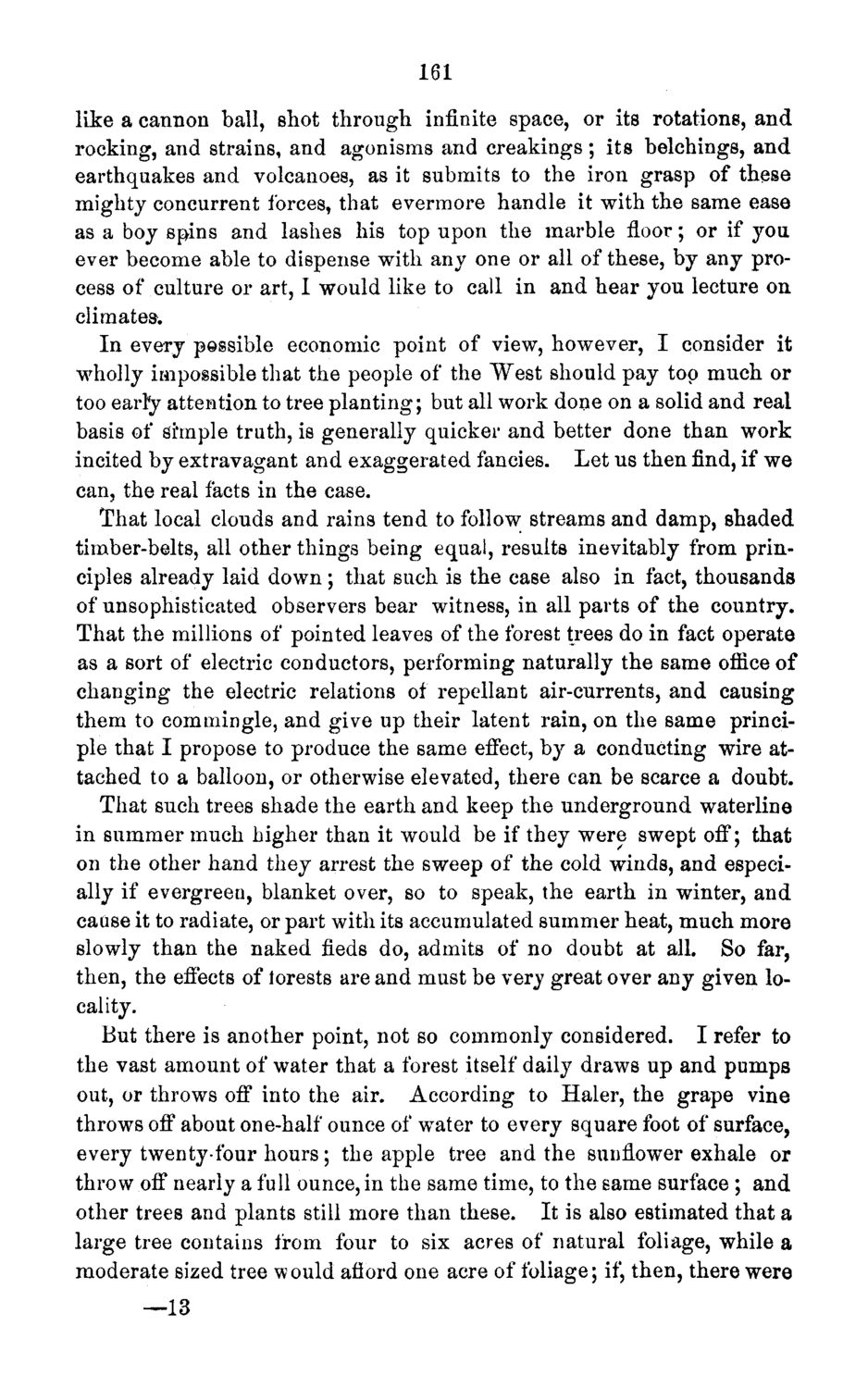| |
| |
Caption: Board of Trustees Minutes - 1871
This is a reduced-resolution page image for fast online browsing.

EXTRACTED TEXT FROM PAGE:
161 like a cannon ball, shot through infinite space, or its rotations, and rocking, and strains, and agonisms and creakings; its belchings, and earthquakes and volcanoes, as it submits to the iron grasp of these mighty concurrent forces, that evermore handle it with the same ease as a boy spins and lashes his top upon the marble floor; or if you ever become able to dispense with any one or all of these, by any process of culture or art, I would like to call in and hear you lecture on climates. In every possible economic point of view, however, I consider it wholly impossible that the people of the West should pay top much or too early attention to tree planting; but all work done on a solid and real basis of simple truth, is generally quicker and better done than work incited by extravagant and exaggerated fancies. Let us then find, if we can, the real facts in the case. That local clouds and rains tend to follow streams and damp, shaded timber-belts, all other things being equal, results inevitably from principles already laid down; that such is the case also in fact, thousands of unsophisticated observers bear witness, in all parts of the country. That the millions of pointed leaves of the forest trees do in fact operate as a sort of electric conductors, performing naturally the same office of changing the electric relations of repellant air-currents, and causing them to commingle, and give up their latent rain, on the same principle that I propose to produce the same effect, by a conducting wire attached to a balloon, or otherwise elevated, there can be scarce a doubt. That such trees shade the earth and keep the underground waterline in summer much higher than it would be if they were swept off; that on the other hand they arrest the sweep of the cold winds, and especially if evergreen, blanket over, so to speak, the earth in winter, and cause it to radiate, or part with its accumulated summer heat, much more slowly than the naked fieds do, admits of no doubt at all. So far, then, the effects of lorests are and must be very great over any given locality. But there is another point, not so commonly considered. I refer to the vast amount of water that a forest itself daily draws up and pumps out, or throws off into the air. According to Haler, the grape vine throws off about one-half ounce of water to every square foot of surface, every twenty-four hours; the apple tree and the sunflower exhale or throw off nearly a full ounce, in the same time, to the same surface ; and other trees and plants still more than these. It is also estimated that a large tree contains from four to six acres of natural foliage, while a moderate sized tree would afiord one acre of foliage; if, then, there were —13
| |